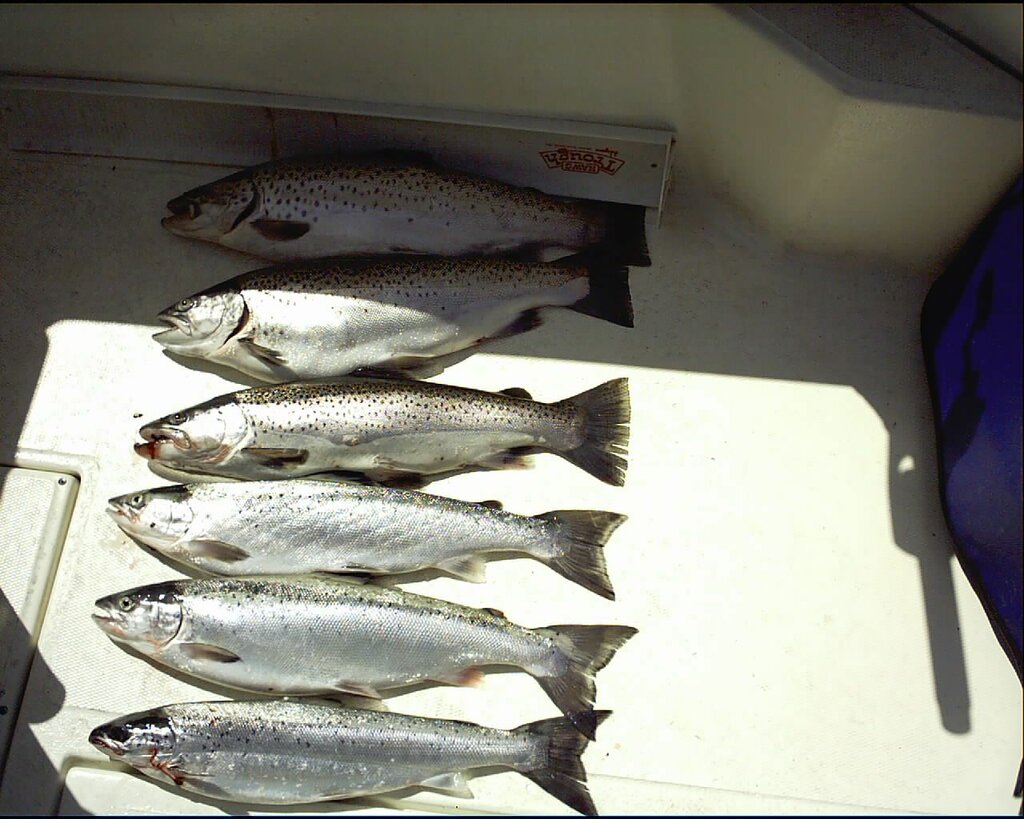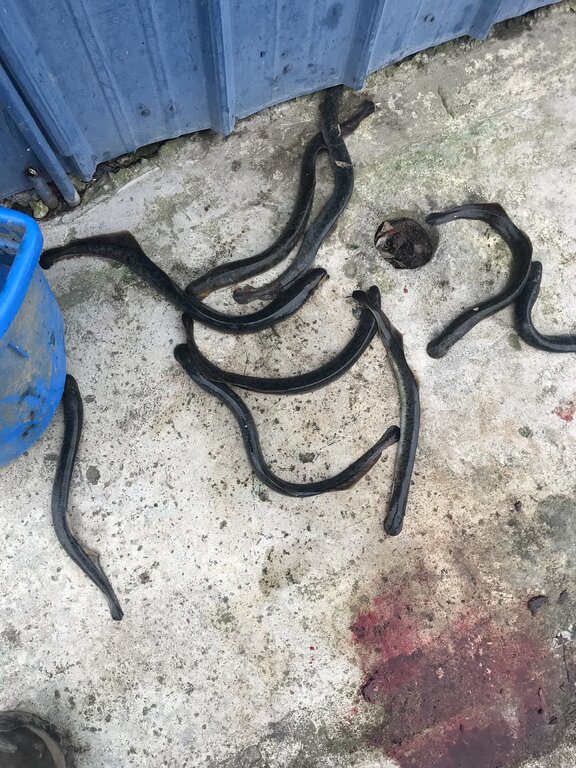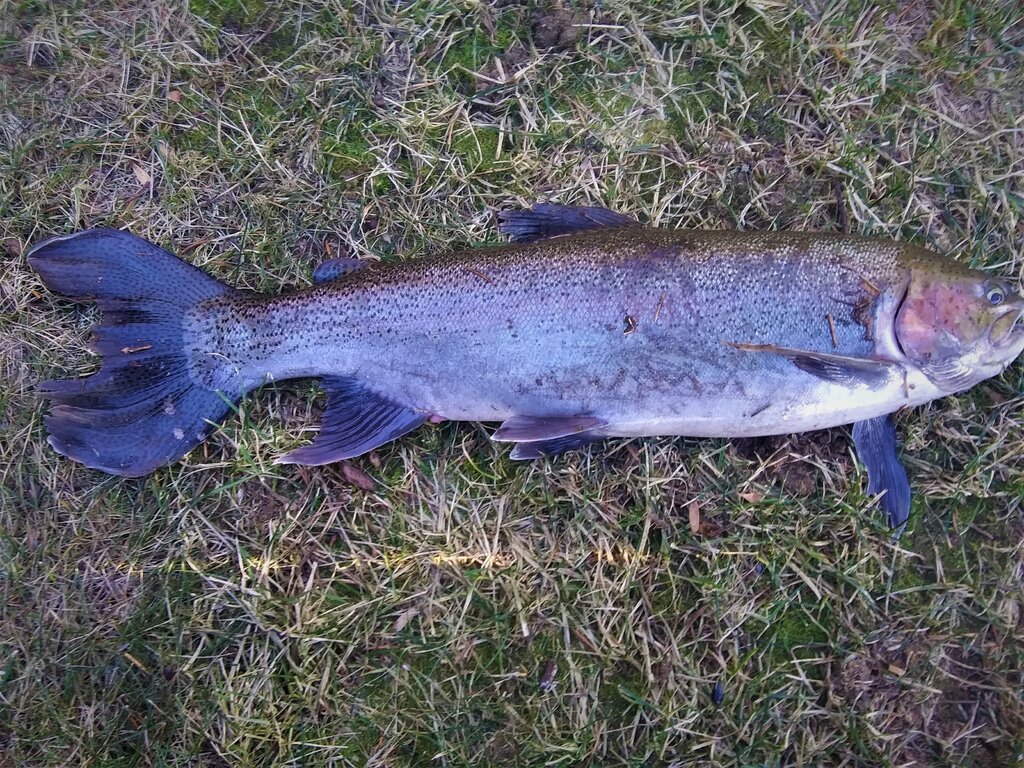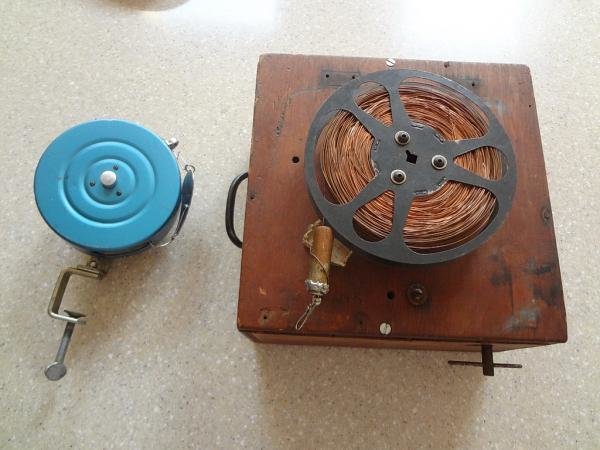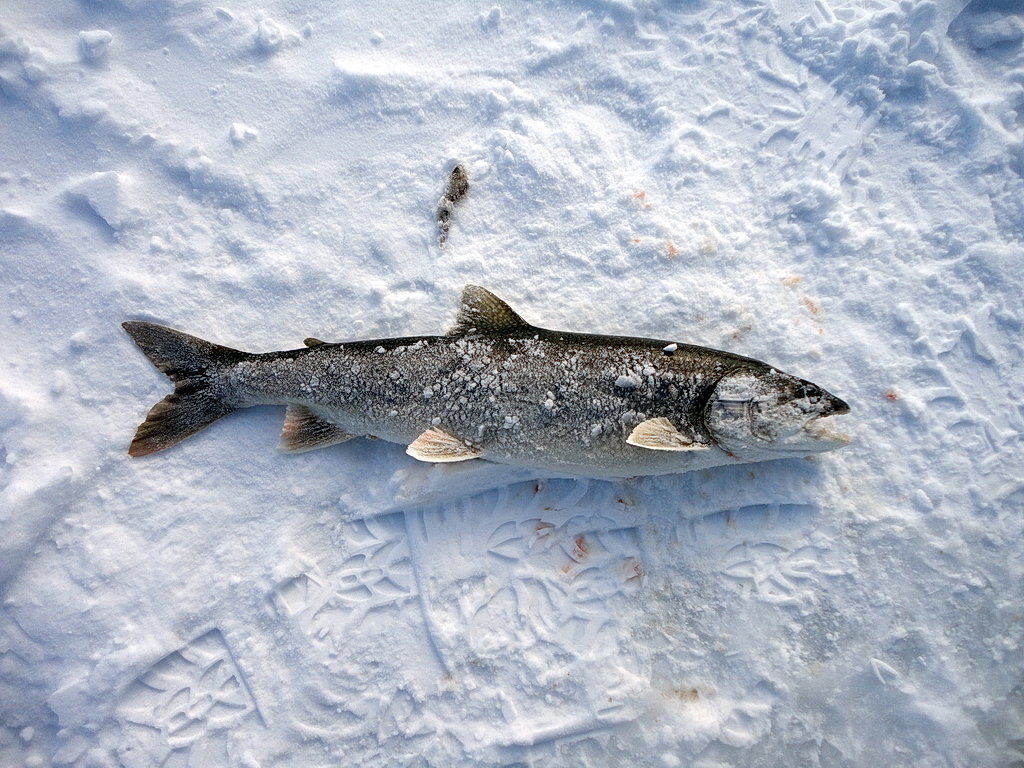

Lucky13
Members-
Posts
1,234 -
Joined
-
Last visited
Everything posted by Lucky13
-
DEC Announces "State of Lake Ontario" Meetings Biologists to Provide Updates on the Status of Lake's Fisheries The public will have the opportunity to learn about the State of Lake Ontario fisheries at public meetings to be held in Niagara, Monroe, Oswego and Schenectady counties in March, New York State Department of Environmental Conservation (DEC) Commissioner Basil Seggos announced today. "Lake Ontario and its tributaries provide world-class angling opportunities that are generating substantial recreational and economic benefits to towns and cities along the lake," Commissioner Seggos said. "The State of Lake Ontario meetings provide an excellent opportunity for everyone interested in the lake to interact with the scientists who study and manage its fisheries." New York's Lake Ontario waters comprise more than 2.7 million acres. The open lake, embayments, and tributaries support thriving populations of sportfish, including trout, salmon, bass, walleye, yellow perch, and panfish. A recent statewide angler survey estimated more than 2.6 million angler days were spent on Lake Ontario and major tributaries, resulting in an estimated economic value of $112 million annually to local communities. The meeting dates and locations are: Monday, March 4: 6:30 - 9 p.m. at the Rochester Institute of Technology (RIT) campus (Chester F Carlson Center for Imaging Science), Rochester, Monroe County. The meeting is co-hosted by RIT and the Monroe County Fishery Advisory Board. Thursday, March 7: 6:30 - 9 p.m. at the Cornell Cooperative Extension Building, 4487 Lake Ave., Lockport, Niagara County. The meeting is co-hosted by Niagara County Cooperative Extension and the Niagara County Sportfishery Development Board. Thursday, March 14: 6:30 - 9 p.m. at SUNY Schenectady County Community College, Stockade Building, Room 101, 78 Washington Ave., Schenectady, Schenectady County. Tuesday, March 19: 6:30 - 9 p.m. at the Pulaski High School auditorium, 4624 Salina St., Pulaski, Oswego County. The meeting is co-hosted by the Eastern Lake Ontario Salmon and Trout Association. Staff from DEC and the United States Geological Survey will make a number of presentations, including updates on the status of trout and salmon fisheries in the lake and its tributaries, forage fish, and stocking programs. The meetings will provide ample time at the end of the scheduled program for the audience to ask questions and interact with the presenters. Information about DEC's Lake Ontario fisheries assessment programs can be found on DEC's website. For further information contact Christopher Legard, NYSDEC Lake Ontario Unit Leader at the Cape Vincent Fisheries Research Station, (315) 654-2147. http://www.dec.ny.gov/press/press.html
-
DEC Postpones State of Skaneateles Lake Fisheries Meeting Due to current weather reports for inclement conditions, the New York State Department of Conservation (DEC) is postponing the informational meeting on the current state of Skaneateles Lake's fisheries originally scheduled to take place tomorrow, Tuesday, February 12, 2018 from 6:30-8:30 p.m. in Homer. DEC is rescheduling the meeting for a mid-March date to be announced 7-10 days in advance. http://www.dec.ny.gov/press/77537.html
-

Please Email DEC on proposed creel limit changes
Lucky13 replied to Gill-T's topic in Open Lake Discussion
Before someone gets the idea that they would be street legal in Ontario with 5 Pacific salmon, 5 Brown trout, 2 Rainbows, 3 lake trout, and an Atlantic salmon per person per day from the lake see the following from Page 10 of the Ontario Guide: “Throughout the province there are standard aggregate limits for all species of trout and salmon in combination. You may only catch and keep in one day or possess no more than five trout and salmon in total under a Sport Fishing Licence (S–5) or two trout and salmon in total under a Conservation Fishing Licence (C–2). In addition to the aggregate limit, you may not exceed individual species limits where they are otherwise stated. “ With our 3 silvers plus an atlantic plus 2 lake trout, a New York Angler can keep one more than a Canadian, although our mix is more specifically limited.. -
I was cleaning in the basement and came across the 1998 Sutton catalog. The attached may be of use to some of you either for reference on the different sizes and shapes, or for making templates for cutting tape to refurbish older ones that have lost the plating. . Sutton020619.pdf
-
- 1
-

-

Please Email DEC on proposed creel limit changes
Lucky13 replied to Gill-T's topic in Open Lake Discussion
The guys from Jersey want to fill their boxes before they go home. In my case the SR has been C+R for about 15 years now ( now some wise guy will say something about NOT catch, and release, rough getting older ) -

Please Email DEC on proposed creel limit changes
Lucky13 replied to Gill-T's topic in Open Lake Discussion
Sometimes you just find a sick(ly) fish. Trolling for Lake Trout in the Fulton Chain, using a lead core rig on an old 9 weight flyrod, I had a hit that I thought was an underize laker, as it came in like a small puppy on a leash. I was very surprised when I looked over the side to net, to see the largest landlocked salmon I’ve ever caught up there, a 26” fish that weighed a little over 6 lbs. If this was the only one I ever caught, I would think all the talk of their great fighting ability was lies. “Post mortem” showed nothing wrong with the fish, and it tasted fine. But as Dave points out, Mysis is down and Diporea is pretty much gone, and that is the bottom of the food chain out there especially for the newly stocked fish. Also seems like there are an awful lot of perch around in bays like Sodus; if the Alewife population is healthy, the perch should be surpressed. . -

Please Email DEC on proposed creel limit changes
Lucky13 replied to Gill-T's topic in Open Lake Discussion
As Dave points out, there are no reports of large numbers of dead trout in any of those tributaries in the fall. There were reports during the thiaminase problem, lots of deads in the pool areas and the estuary then. All trout get released in Douglaston on the Salmon River all year, and they are still getting all they need at the hatchery, plus fishable returns to the fishery all winter. The Salmon is the major dropback river, and it stays cold into late June, and supports some trout and salmon all summer Not saying that some fish don’t die, but the number in most of those studies is not massive. -

Please Email DEC on proposed creel limit changes
Lucky13 replied to Gill-T's topic in Open Lake Discussion
These should keep you busy for a while. Then, please provide some data other than the boat survey on predator distribution out in the Lake, not saying Gambler is wrong, but I know of nothing other than anecdotal information, it's not like anyone is gill netting out there. https://henrysfork.org/files/Rob Blog/C%26R mortality review.pdf http://www.wildsteelheaders.org/science-friday-how-does-catch-and-release-affect-steelhead/ https://www.psmfc.org/steelhead/2016/Bentley_Steelhead_C&R_mortality_Steelhead_Mgmt_Meeting,_March_8,_2016_for_PSMFC.pdf https://www.sciencedirect.com/science/article/abs/pii/S0165783618301553 Abstract only https://www.researchgate.net/publication/226522409_A_Review_of_Catch-and-Release_Angling_Mortality_with_Implications_for_No-take_Reserves Many abstracts -

Please Email DEC on proposed creel limit changes
Lucky13 replied to Gill-T's topic in Open Lake Discussion
As a point of clarification, the size change for steelhead is only applied to the tributaries. The size in the lake remains 21”. -

Please Email DEC on proposed creel limit changes
Lucky13 replied to Gill-T's topic in Open Lake Discussion
From Jana Lantry’s last report on the Boat Fishery, in the 2017 SOL report: “For 32 consecutive years (1986-2017), the majority of rainbow trout caught and harvested were in the west area (Lantry and Eckert 2011; Table 14a). In 2017, 67.2% of all rainbow trout caught and 75.3% of those harvested were from the west area. The majority of rainbow trout catch (52.1%) and harvest (56.3%) occurred during August (Table A14a)." This does not sound like a random distribution to me. Maybe the Sandy Creek Operators are not specifically targeting rainbows, but west of there, not so much. -

Please Email DEC on proposed creel limit changes
Lucky13 replied to Gill-T's topic in Open Lake Discussion
I can’t speak for Dave, have not heard from him since last fall, and I am out of al but one loop with NYSDEC on the lake currently. I have been a staunch supporter of the 25” size limit since the first round of “debates” on this, the data clearly indicates that this gets most of the steelhead back into the tributaries once to spawn, and 25” is starting to be a trophy fish. As to C+R, I agree with Dave that any fish that is properly released at least has a better chance of survival than the one that hits the box, that one is definitely dead. I know the one Brown in the tributaries has been floating around since Dave McNeil of Sea Grant was attempting to organize tributary anglers 15+ years ago, and it was most vocally expressed by Ron out at the Oak. But many of the Charter operators have expressed their disgust with the egg harvesters on the tributaries in the fall on these boards, and it is still three in the Lake (although maybe trib anglers should really stir the pot and push for a one brown limit there as well, and resurrect he one steelhead limit, as long as our noses are out of whack) so I don’t understand being upset unless of course your egg harvesting is disrupted by this. This is a preproposal, so there will be lots of future opportunities to comment. -

Please Email DEC on proposed creel limit changes
Lucky13 replied to Gill-T's topic in Open Lake Discussion
What, only the Coast Guard paper holders are allowed to have their noses up the DEC' backsides? -

Please Email DEC on proposed creel limit changes
Lucky13 replied to Gill-T's topic in Open Lake Discussion
For those who may not be as adept at finding all this (and Gill’s post is the first I’ve heard of any of this, thank you, sir.) http://www.dec.ny.gov/outdoor/115977.html Great Lakes regulations under consideration Extend the open season for lake trout in Lake Ontario and the Lower Niagara River (2020_GL 01) Email a comment Description: Open the Lake Ontario/Lower Niagara River lake trout season on December 1 (currently opens January 1). The season would be closed from October 1 through November 30. Rationale: Anglers targeting rainbow trout/steelhead in the Lower Niagara River frequently catch lake trout. Since lake trout spawning is largely over by the end of November, opening the lake trout season on December 1 will provide anglers with additional opportunities to harvest trophy lake trout without jeopardizing lake trout restoration efforts. Reduce the daily creel limit for brown trout in Lake Ontario tributaries (2020_GL_02) Email a comment Description: Reduce the daily creel limit for brown trout in Lake Ontario tributaries from 3 fish per day to 1 fish per day (excluding the Lower Niagara River). Rationale: This potential change is intended to prolong high quality brown trout fishing opportunities through the winter months, while still allowing anglers the opportunity to harvest a trophy fish. Fishing effort on Lake Ontario tributaries can be intense each year from fall through spring, and maintaining high quality brown trout fishing opportunities relies on anglers releasing a high proportion of their catch. Increase the minimum size limit for rainbow trout/steelhead on Lake Ontario tributaries (2020_GL_03) Email a comment Description: Increase the minimum size limit for rainbow trout/steelhead on Lake Ontario tributaries from 21" to 25" (excluding the Lower Niagara River). Rationale: This potential change is intended to prolong high quality rainbow trout/steelhead fishing opportunities through the winter months, while still allowing anglers the opportunity to harvest a trophy fish. Anglers have noted smaller rainbow trout/steelhead in recent years, and declining rainbow trout/steelhead fishing success as the winter season progresses. Decrease the daily creel limit for rainbow trout/steelhead on Lake Ontario and the Lower Niagara River (2020_GL_04) Email a comment Description: Reduce the daily creel limit for rainbow trout/steelhead on Lake Ontario and the Lower Niagara River from 3 fish per day to 2 fish per day. Rationale: Rainbow trout/steelhead provide the primary sportfishery in Lake Ontario's tributaries from November through the following spring. This potential change is designed to increase numbers and sustainability of rainbow trout/steelhead in the tributary fishery by reducing open lake harvest during periods when Chinook fishing success in the lake declines and more anglers specifically target rainbow trout/steelhead. -
I wanted to buy some 5's a few years back as they were the closest to the old Miller I got from my Grandfather. At that time she told me they had the spoons, but only in brass (gold) as they had lost their plater, and had not found another. They may have a new plater who hasn't got it down as well as the old one. Plating is getting to be problematic as the degreasers and the plating solutions are very expensive to dispose of. The brass ones worked great up in the 'daks, same size as the YOY smelt in early August, we went through my trial purchase in the first couple of days. I'm looking at finishing some of my old 44's with holographic sheets, but the additional weight of the adhesive and the sheet and a lacquer finish might ruin the action.
-
I can see red spots on the sides, and more red on the adipose and caudal fins than I would associate with a landlocked, so I'm voting brown. This is a great example of why ECO's count the rays in the anal fin, and check the roof of the mouth ( I've been with an ECO when he did it to some landlocks we caught in Fourth Lake in the Fulton Chain.) The way I see it, the mouth does extend behind the eye, also.
-
-
We have Washington ( Chambers Creek) strain, Skamania strain, and McCloud strain fish in Lake Ontario. All are the same species, Oncorhynchus mykiss, reclassified from Genus Salmo because a Russian taxonomist was determined to have described and named the species first. The Chambers Creek fish go into the rivers and streams that are stocked with "steelhead," most if not all Skamania's go into the Salmon River, and both are raised at the Altmar hatchery. The McCloud fish are descended from the fish brought to NYS by Seth Green, are shore stocked along the lake at various locations, are raised at the Randolph hatchery, and are often referred to as domestic rainbows . While the saltwater distinction is maintained by some biologists and a lot of west coast fishers, many also see the freshwater transplants as also being "steelhead, because they follow the same stream, big water, stream life cycle as they do in Saltwater.
-
As for Victorlas, the spring motors were generally obtained from old units left on the curb for the trashman. Nowadays, people look for the trolling units so they can get a spring motor for restoring a Victrola. If someone manufactured a spring operated motor now, that would handle 200-300 feet of line, I'd buy a couple, pulling wire is very effective up in the 'daks, where the bottom is generally too rough and variable for downriggers!
-
Holdren’s classic has been out of print for quite a while, and will bring a fair number of dollars if you can find one in fair or better shape. Some of the book is printed as an appendix to the Sander’s Guide that covers the Finger Lakes, but the Sander’s Guides are also getting kind of rare. I’m surprised that no one has seen an opportunity to re-release these very helpful books from the past, I’ve used some of his odd tricks, like a streamer or a wetfly up the leader, with great success in the Adirondacks, and there are a ton of different topics discussed on all aspects of trout fishing in the Fingers. His description of the “submarine currents” and their effects on the lure alone is worth the price of the book, although $125 is rich for my bank account.
-
If the Genny ever comes down, you'll find him down there!
-
I caught a 27 incher a few years back. I mentioned this fish to Matt Sanderson of Region 8. He told me that every year they get a couple of reports, same area of the lake (sorry, you'll have to get Mr Okrepki to tell you where that is, he knows everything about walleyes!), similar sizes. They know there is some limited reproduction going on as they have not stocked walleyes in a very long time in there. They will not increase this population through stocking as their surveys indicated that the majority of the angling population favored maintenance of Hemlock as a trout fishery.
-
-
-
From the Power Point used at the meeting back in the spring. (my bold) Management Actions/Proposals • Continue monitoring salmonine populations Gillnetting (3 yr), Angler diary (annually), spring RT (annually), RT production (3 yr), Biomonitoring (coordinate agencies) • Stock Finger Lakes strain rainbow trout yearlings Hatchery limited • Eliminate brown trout and/or Atlantic salmon stocking • Develop plan to monitor warmwater fishery • Determine status of walleye population • Develop forage fish assessment plan • Stock cisco
-
From a post from a diary cooperator last March, "From Diary program. “considering the current forage conditions in Keuka Lake, we are temporarily discontinuing these stocking programs.” (Browns/Atlantic). Rainbow stockings will get yearling Finger Lakes strain rainbow stockings in place of fingerlings. A bit larger fish.... "

